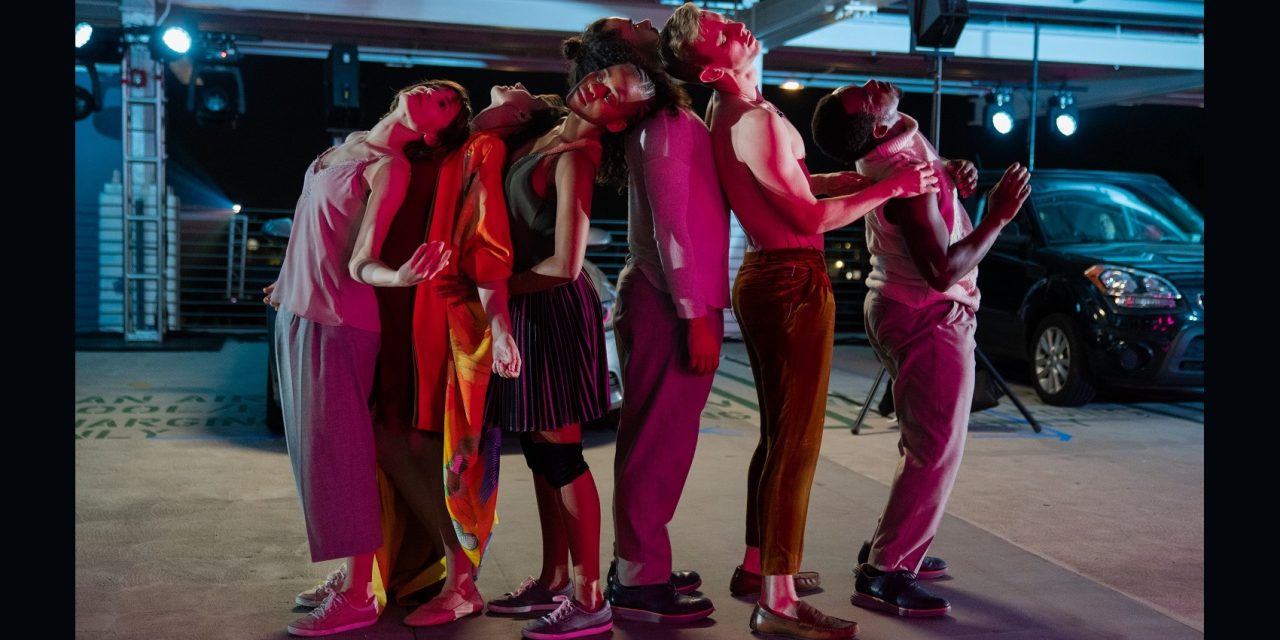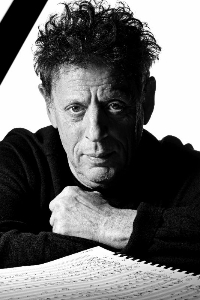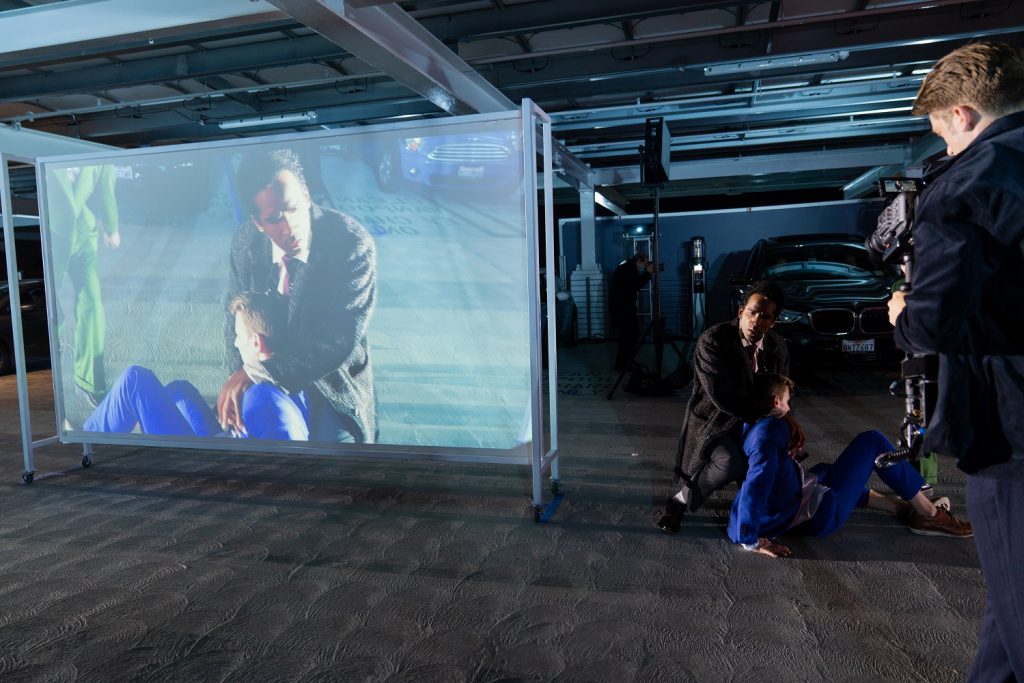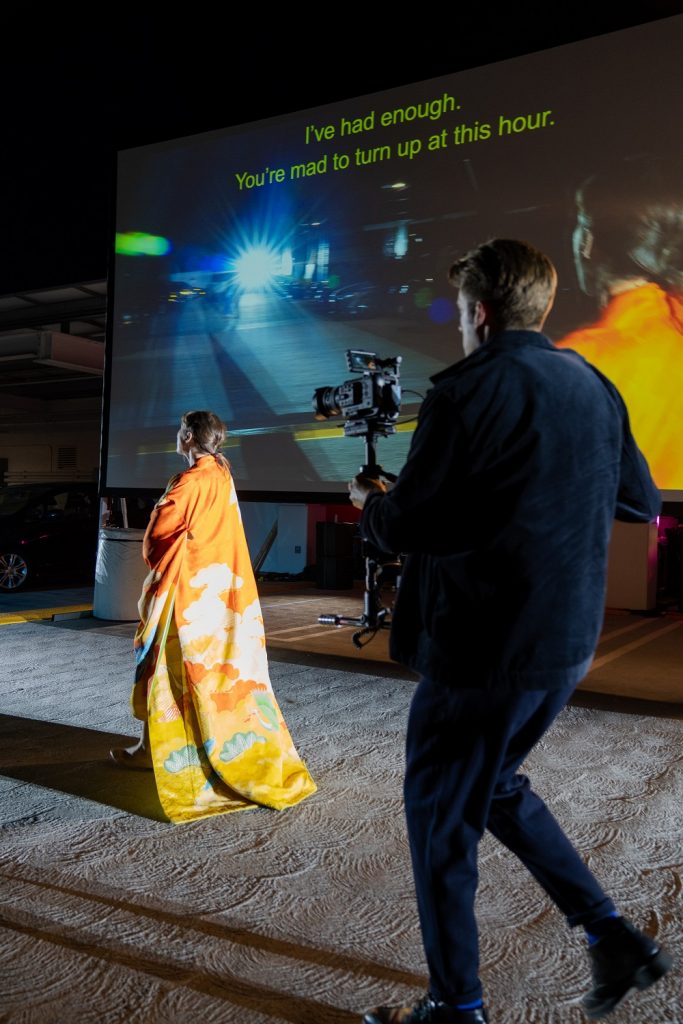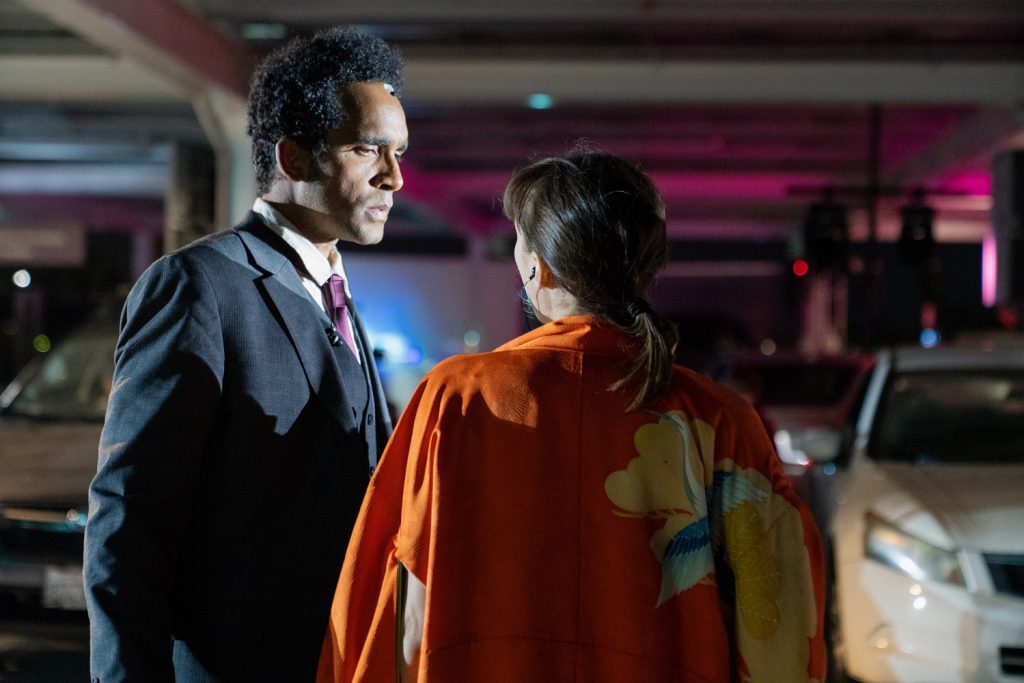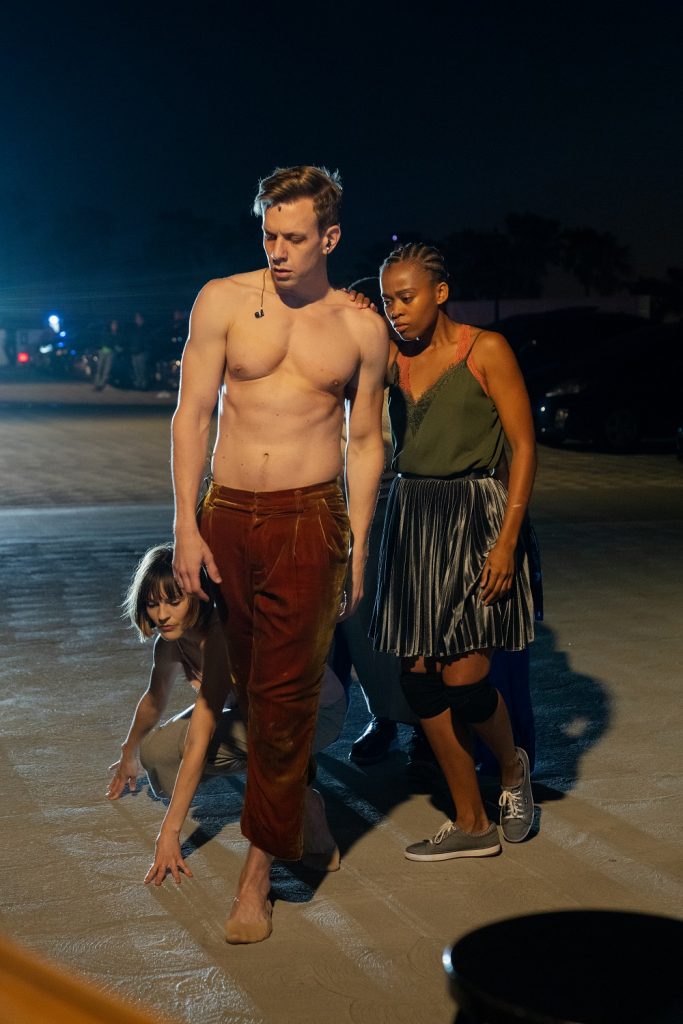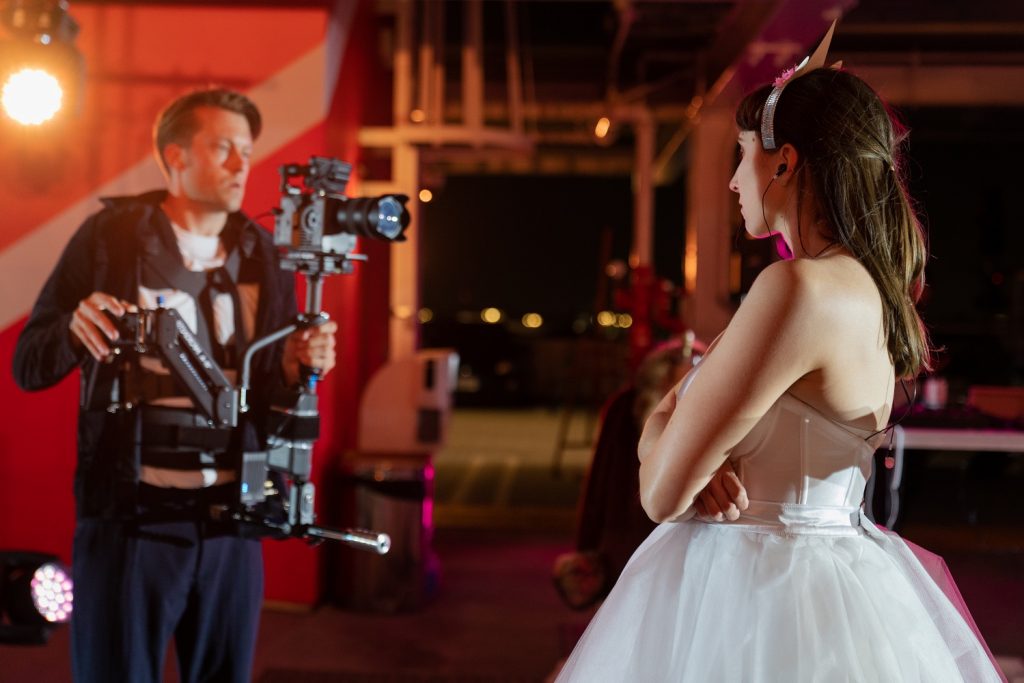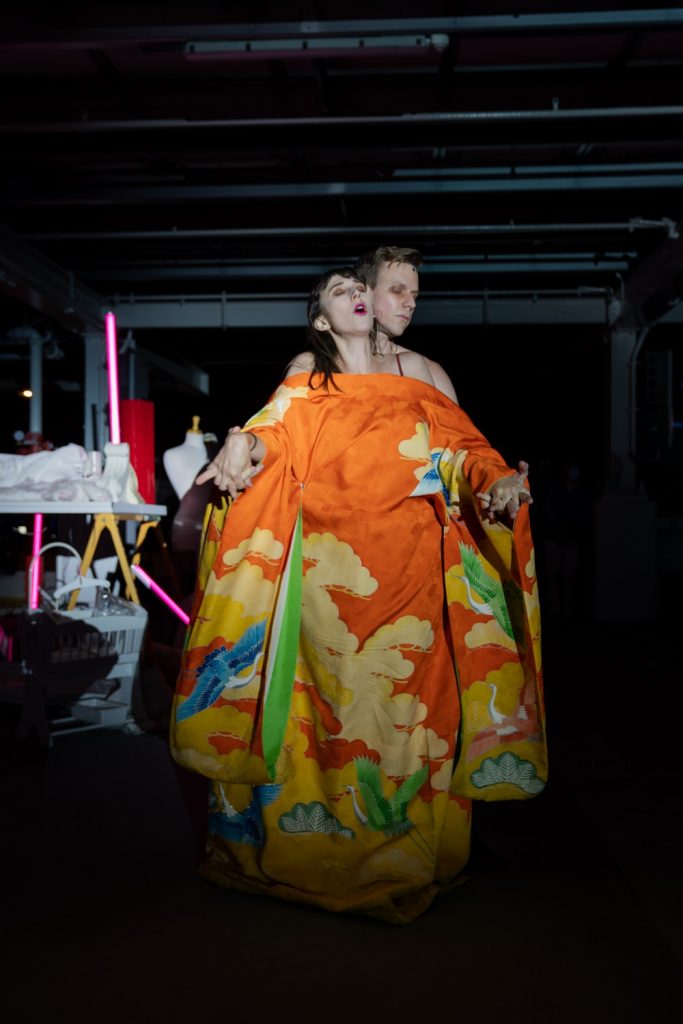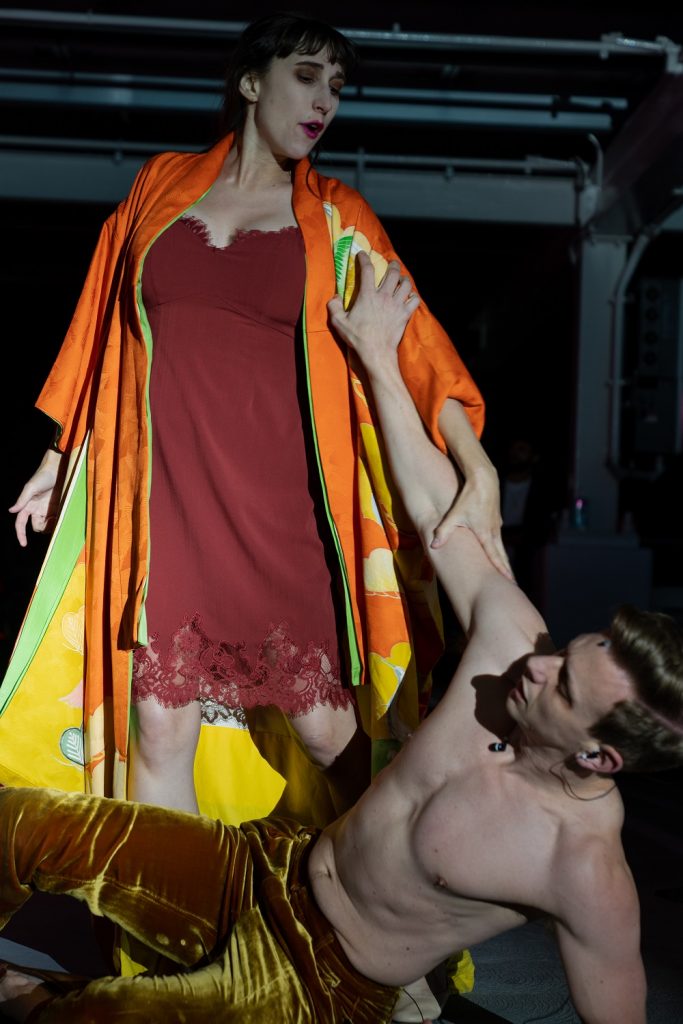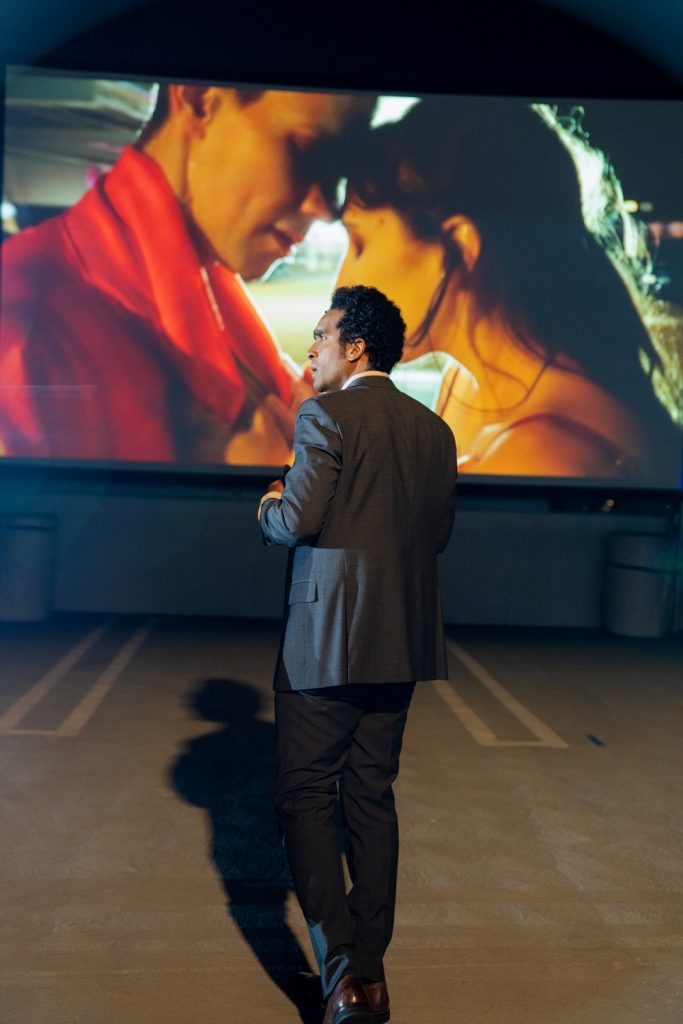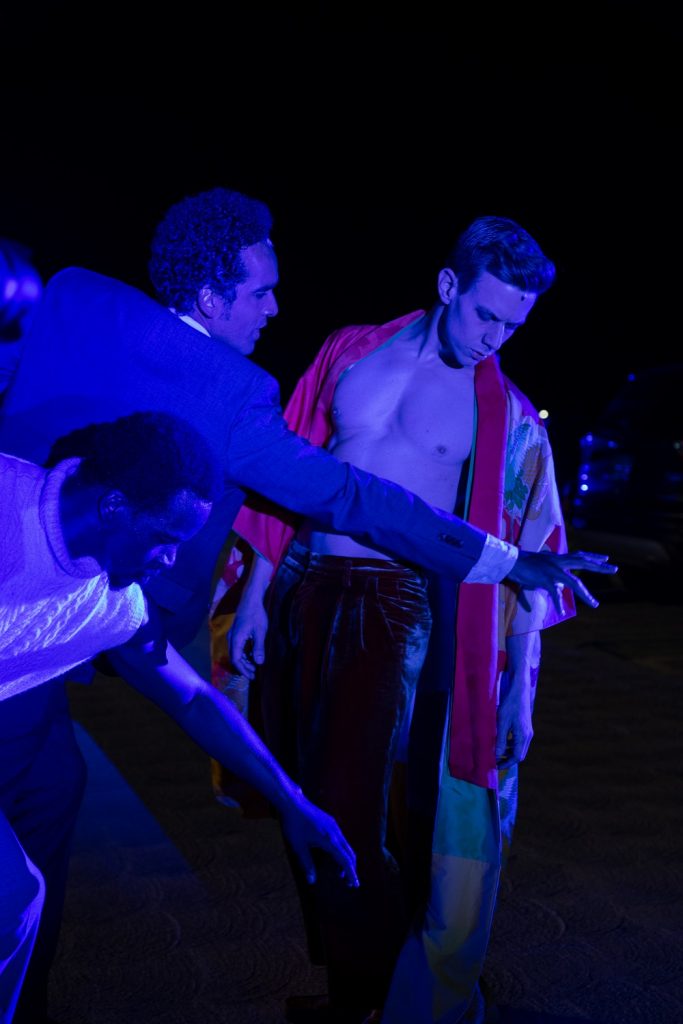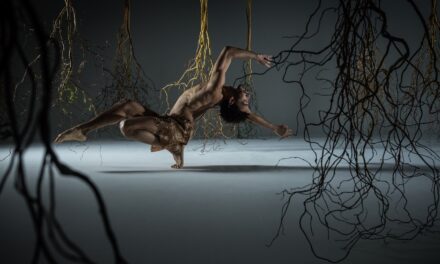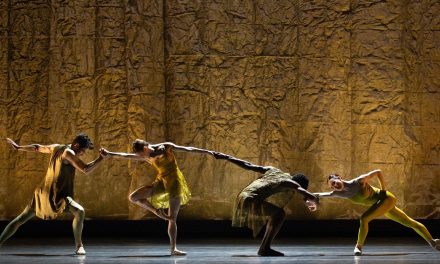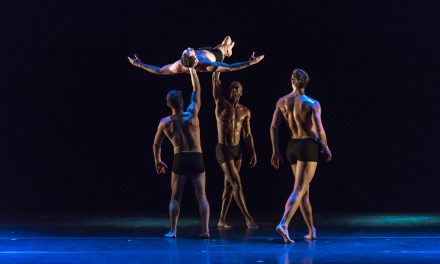The Long Beach Opera (LBO) is one of the oldest operatic companies in the Los Angeles area. Founded in 1979 as the Long Beach Grand Opera by Michael Milenski, the company chose Verdi’s LA Traviata starring Metropolitan Opera stars Benita Valente and Louis Quilico as its inaugural production. Milenski went on to work with the LBO for 25 years, retiring in 2004. Over the years, LBO has become known for its original staging of productions that have included King Roger by Karol Szymanowski, Mozart’s Lucio Silla, Schoenberg’s Die Jakobsleiter, Bernd Alois Zimmermann’s Turning, I Saw Great Injustice and the issuing of a recording of John Cage’s Europeras 3&4.
Like all performance companies, the pandemic forced LBO to shut its doors, but on May 21, 2021 in collaboration with ONE Festival of Opera Omaha, LBO premiered the dark opera Les Enfants Terribles with music by Philip Glass and the libretto based on the work by the same title by French writer and filmmaker Jean Cocteau. This was the directorial debut for recently hired Artistic Director, James Darrah, the Conductor was Christopher Roundtree and the choreographer was LA-based Chris Emile.
Les Enfants Terribles premiered in May of 1996 in Zug, Switzerland conducted by Karen Kamensek and made its US debut that same year at the Brooklyn Academy of Music (BAM). It was the third of Glass’s Cocteau trilogy, the first being Orphée (1991), followed by La Belle et la Bête (1994).
Because of the pandemic health guideline restrictions, LBO could not premiere Les Enfants Terribles in a theater and chose to follow the now popular drive-in style performance on the 3rd level of a 2ND & PCH shopping mall parking structure. Needless to say, there were many challenges to this choice of venue, and while I enthusiastically applaud the effort, not all of those hurdles were overcome by LBO’s production staff.
The audience drove their cars up to the 3rd level of the parking structure and according to your ticket, were instructed by extremely polite and helpful staff members. Group A, which I was in, were parked under a solar panel roof, but group B was outside. The performance was experienced both live and via a steady cam operated by director Darrah simultaneously viewed on video screens set up throughout the space. The music could also be heard live, or through a pre-designated radio station in ones car, and the translation of French libretto appearing onto separate caption screens.
We were told that having the director run the steady cam was a benefit because we would experience the opera through his directorial eyes. Darrah did indeed follow the singers/actors/dancers throughout the space, but unless one was positioned where they could see the action not shown on the video screen, they missed certain aspects of the performance that were taking place in other areas of the venue.
Before the performance began, I could see screen where the subtitles were going to be shown, but once the video screens were put into place, my view of the translation was totally blocked. In order to see them, I would have had to move completely away from my designated area. Luckily, I had read the opera’s synopsis.
An extremely abbreviated version of the story is siblings Elizabeth and Paul are orphaned following the death of their mother. Left to their own devices they live together in their large Parisian apartment, share the same bedroom, and develop, what one can only call, a complicated relationship that borders on incestuous. The two children create what they call a game with mysterious rules that are only known to them. Paul gets injured, Elizabeth meets and marries Michael who dies in a car crash before their marriage is consummated. The siblings move into Michael’s huge mansion where the story and the cast of characters become even more complicated and ends with Elizabeth killing herself and her brother.
For this production Elizabeth was performed by mezzo-soprano Anna Schubert and winner of the 2020 Glyndebourne Opera Cup, American baritone Edward Nelson performing the role of Paul. Both performers gave an excellent vocal performance, but I was less impressed with Nelson’s acting abilities. Schubert, however, was very convincing as the dominate and domineering sister who controls her brother by taunting him with her feminine wiles, only to rebuff and degrade him. One is not surprised when she stands over Paul drug-induced body, pours gasoline over him and holds a cigarette lighter in one hand and a gun in the other. Schubert’s actions draw a clear and direct line toward that end. We see that she loves Paul but knows that their relationship is taboo.
The other two singers who each delivered a strong performance were Sarah Beaty portraying the dual roles of Paul’s enemy Dargelos and Agathe, and Orson Van Gay II as Gérard, who narrates the story of the ill-destined siblings. It is Agathe who becomes close to Paul and Elizabeth but ends up marrying Gérard. They each are present when Elizabeth commits the murder/suicide.
There are four dancers performing in this production of Les Enfants Terribles and each does so quite well, but they often feel like window dressing rather than essential characters. There are times when one gets a sense that these four ghostly figures are actually just that, shadowy figures created within the troubling game created by Elizabeth and Paul. It is during these few scene where Emile’s choreography excels. Shauna Davis’s solo in front to a reflective wall is one of the highlights of the evening. In that one solo, we see Elizabeth’s internal thoughts and conflicts. Indeed, she and another woman (Samantha Mohr) join Davis in a brief single persona movement – the three are actually one.
Philip Glass’s music was composed for three pianos and performed wonderfully by co-founded of Pacific Opera Project Stephen Karr, Grammy nominated pianist and leading interpreter of contemporary piano music Vicki Ray, and composer and pianist Sarah Gibson.
The Production Designer for Les Enfants Terribles was Yuki Izumihara; Costume Designer, Camille Assaf, Projection Designer, Adam Larsen, Lighting Designer, Dan Weingarten, and Sound Designer, Benjamin. Each of these artists did an amazing job especially considering that they had to work withing the limitations of a shopping mall’s parking structure. Weingarten skillfully managed to light the area without blinding the actors or the audience. The unmemorable preshow ambient music was composed and performed by Edward Nelson.
What was very unfortunate on this opening night’s performance was that the video screen available to me was out of sync with the sound and the pictures kept pixelating. I have no idea if this problem was true with the other video screens.
I have seen and enjoyed many live concerts of the Philip Glass Ensemble and Einstein On the Beach which Glass collaborated on with American experimental theater stage director and playwright Robert Wilson. On leaving the 2ND & PCH parking structure, however I was experiencing a huge disappointment with Long Beach Opera’s production of Les Enfants Terribles. It was a valiant attempt that missed its mark. Perhaps they will revive it one the company returns to a more traditional theater setting.
To visit the Long Beach Opera website, click HERE.
To visit the Philip Glass website, click HERE.
To learn more about Opera Omaha and the ONE Festival, click HERE.
Written by Jeff Slayton for LA Dance Chronicle.
Featured image: Samantha Mohr, Anna Schubert, Shauna Davis, Joe Davis, Edward Nelson, and Maleek Washington in Les Enfants Terribles – Long Beach Opera – Photo by Jordan Geiger.

